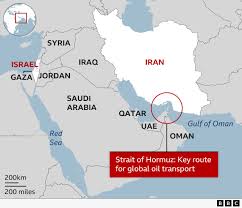Guyana election 2025: Staffers count votes in presidential election,Amid oil riches

Voting for the presidential race in Guyana has ended. The competition is broadly between three main political parties. Today we will discuss about Guyana election 2025: Staffers count votes in presidential election,Amid oil riches
Guyana election 2025: Staffers count votes in presidential election,Amid oil riches
On September 1, 2025, Guyana held a momentous general election—including both parliamentary and presidential races—that also marked a pivotal juncture in the nation’s transformation into a petrostate. Election staffers were seen counting ballots under the shadow of freshly minted oil wealth—a transformation that has fundamentally reshaped Guyana’s national identity, economy, and political landscape
Since 2019, Guyana has seen an extraordinary economic boom, thanks to offshore oil discoveries in the Stabroek Block led by ExxonMobil and its partners. The country’s GDP has ballooned from an estimated $5 billion in 2019 to nearly $25–26 billion in 2024, nearly fivefold growth that positions Guyana among the fastest-growing economies in the world
Election officials—many recruited from across the nation—worked tirelessly, some for long hours, to tabulate results quickly and professionally. International observers, including from the Carter Center, the Organization of American States (OAS), and CARICOM, monitored these procedures closely. They praised the professionalism of poll workers, noting improvements over the drawn-out dispute following the 2020 vote
The Oil Boom: Fueling Expectations and Frictions
Economic Windfall, Uneven Impact

The oil boom has delivered some tangible benefits: infrastructure upgrades, improved public services, expanded education, and social welfare programs. National revenues have surged—state budgets quadrupled to around $6.7 billion by 2025 The Natural Resource Fund (NRF), Guyana’s sovereign wealth mechanism established in 2019, was designed to manage these revenues responsibly, though critics allege recent legislative amendments have weakened oversight
However, the benefits remain unevenly distributed. A 2025 poll found that over 60% of Guyanese felt the oil wealth was concentrated among a political elite rather than equitably shared, fueling discontent—especially among the youth and undecided voters
Infrastructure vs. Sustainability Debate
President Irfaan Ali‘s administration emphasized infrastructure: highways, schools, hospitals, and housing, alongside free university tuition and cash transfers. These rallying points formed the backbone of the PPP/C campaign
Opponents argued this approach favored short-term visibility over long-term resilience. They warned of the resource curse and pushed instead for diversification (agriculture, manufacturing, renewables), environmental safeguards, contract transparency, and stronger checks on the NRF
Opposition figures called for renegotiating the production-sharing agreements, arguing Guyana deserved a greater stake, while the PPP argued such changes would deter foreign investment
Meanwhile, Azruddin Mohamed, leader of the newcomer WIN party (We Invest in Nationhood), and previously sanctioned by the U.S., leveraged youth sentiment and frustration with traditional parties to propose sweeping reforms. His presence added a wildcard element to the race
Geopolitics and the Border Dispute
Guyana’s elections unfolded against heightened international scrutiny. The International Court of Justice (ICJ) ruled that Venezuela must halt attempts to govern the oil-rich Essequibo region, a long-disputed territory rich in resources that instability or protest during vote counting could provide an opportunity for Venezuela to escalate border claims or deploy disinformation campaigns. A PPP/C victory would bolster its international legal stance but deepen alignment with the U.S.; an opposition win might alter that balance and impact diplomatic dynamics
Election Day: Counting Votes Amid Abundance
On September 1, 2025, polling stations opened across Guyana, drawing energized citizens hopeful for both prosperity and fairness. Staffers—many local volunteers—were tasked with counting votes under tight timelines amid scrutiny from both local and international observers.
For many, election day felt symbolic: agricultural communities, coastal towns, and indigenous villages all sent messages through their ballots about how the oil boom has—or has not—touched their lives.
Unofficial results trickled in, with expectations that final tallies would be ready by Thursday, September 4, a faster pace than the 2020 standoff
What the Election Implications Could Be
A PPP Win
If President Ali and the PPP/C secure a second term, they are poised to continue infrastructure expansion and social program funding. A strong win may allow them to fend off efforts to revamp oil contracts or tighten NRF governance—but they must manage inflation, inequality, and climate credibly to maintain legitimacy.
Opposition Advances or WIN Shock
If APNU (Aubrey Norton) or WIN (Azruddin Mohamed) gain traction, voters may be demanding accountability and transparency. A fragmented parliament could slow decision-making and raise investor concern—but could also signal renewed oversight and diversification strategies.
The Future Beyond the Polls
Resource Management: Whichever side governs will need to address governance structures for the NRF, ensure equitable revenue distribution, push back on the resource curse, and navigate oil contract politics.
Diversification and Equity: Investment in agriculture, manufacturing, renewable energy, and education/training (like the Lusignan petroleum training center) will be key to long-term prosperity
Environmental Stewardship: Balancing oil development with conservation—given Guyana’s carbon-negative aspirations—will be critical.
International Alignment: The result will shape how Guyana positions itself between major powers, especially in the context of tensions over Essequibo and global energy markets.
Conclusion
The Guyana Election 2025 stands as a defining moment for a country reborn in oil. As ballot staffers meticulously counted votes, the stakes were clear: the outcome will not only decide a presidency or parliamentary seat—it will frame the nation’s approach to managing its wealth, its fairness, and its future.
How useful was this post?
Click on a star to rate it!
Average rating 0 / 5. Vote count: 0
No votes so far! Be the first to rate this post.
About the Author
usa5911.com
Administrator
Hi, I’m Gurdeep Singh, a professional content writer from India with over 3 years of experience in the field. I specialize in covering U.S. politics, delivering timely and engaging content tailored specifically for an American audience. Along with my dedicated team, we track and report on all the latest political trends, news, and in-depth analysis shaping the United States today. Our goal is to provide clear, factual, and compelling content that keeps readers informed and engaged with the ever-changing political landscape.




